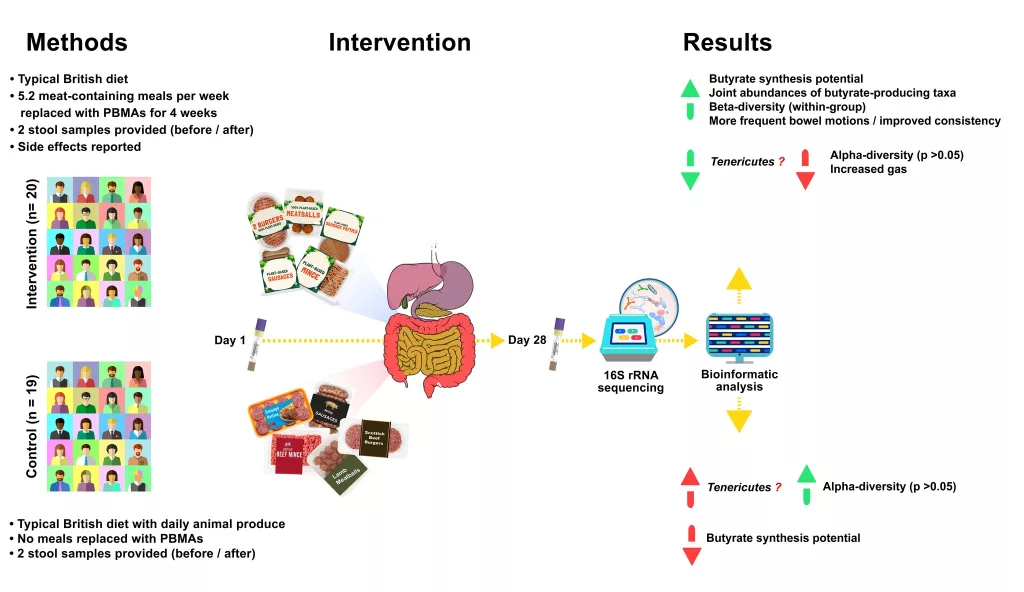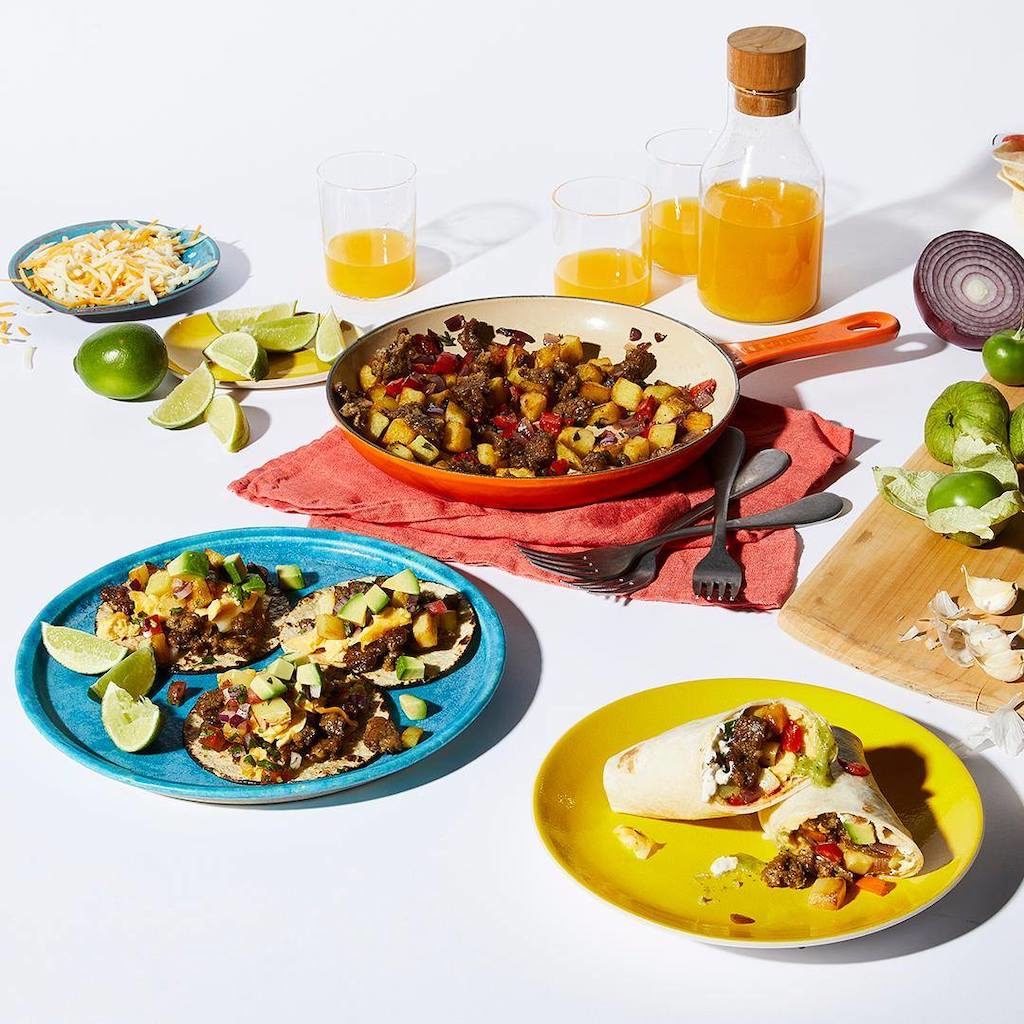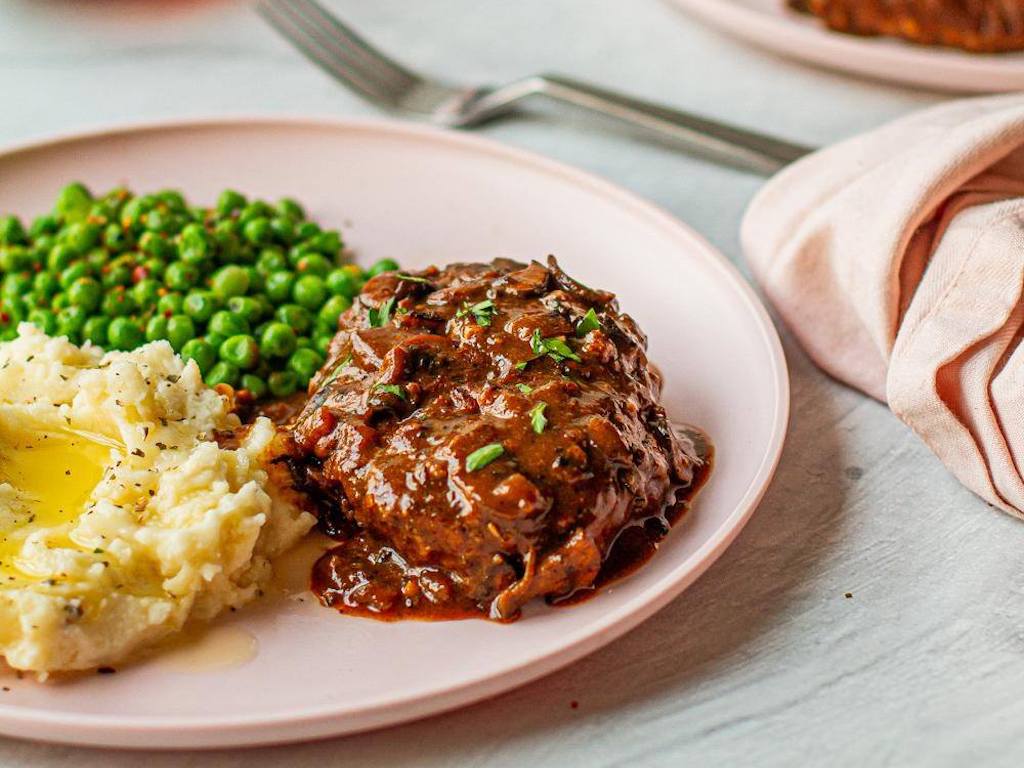4 Mins Read
As plant-based meat alternatives continue to surge in popularity, many are wondering: are these substitutes really healthier than animal meat? A new study suggests that in general, it’s a yes. According to a new study led by researchers from London and Moscow, the occasional replacement of animal meat with vegan meat alternatives can lead to positive outcomes for our gut microbiome.
The new study, published in the peer-reviewed journal Foods, explored how eating plant-based meat alternatives would impact gut health. Led by a team of researchers hailing from a number of institutions across London and Moscow, the study argued that not all plant-based meat alternatives are ultra-processed by default, and the partial replacement of animal meat with vegan alternatives in a flexitarian diet could promote positive outcomes for our gut microbiome.
The research was funded by London South Bank University, with additional financing for the cost of microbiome test kits provided by British plant-based meat startup Meatless Farm.
Focusing on plant-based meat as a replacement

Up until now, much of the research has focused on the environmental impact of swapping out animal meat for vegan substitutes. And while there is a bed of evidence supporting the health benefits of predominantly whole food plant-based diets, fewer studies have focused on the health effect of eating plant-based meat alternatives.
The latest study published in Foods focuses on flexitarians or “part-time vegans” who are replacing at least some of the meat they consume with plant-based meat alternative (PBMA) products. Many of these products include vegan mince, burger patties, meatballs and sausages—and many have also been criticised for being ultra-processed and could be seen as “unhealthy” replacements.
But according to the authors, “the mere industrial processing of ingredients of plant origin does not make a PBMA product ultra-processed by default,” and there exists variation between different plant-based products, such as those containing palm oil or coconut oil, versus those with “cleaner” labels.
Impact on gut microbiome
In their randomised control study, the researchers assessed the changes of the gut microbiome of 20 participants who followed a flexitarian diet. Over the course of the study, several meat-based meals per week were replaced with PBMA products.

Compared to the size-matched control group, the group that replaced several animal meat dishes with PBMAs experienced an increase in butyrate metabolising potential, and in the joint abundance of butyrate-producing taxa. The intervention group also saw a decrease in Tenericutes phylum and a generally higher beta-diversity in their gut microbiome.
While noting limitations of its small sample size, the researchers were “were able to confirm that the PBMA products provided to participants in the intervention group elicited changes in their gut microbiota that are consistent with eubiosis,” otherwise known as a “healthy gut microbiome”.
“The occasional replacement of animal meats with PBMA products seen in flexitarian dietary patterns may promote positive changes to the gut microbiome of consumer,” the team concluded.

Vegan meat consumption and health impacts
While still an underexplored topic, more research is now being undertaken to assess the human health impact of plant-based meat consumption.
In May this year, a new collaboration was formed between the Singapore government’s science agency A*STAR and Chinese e-commerce giant Pinduoduo, to produce quantifiable data comparing the nutritional differences between plant-based meats and animal proteins.
Last year, a Stanford Medicine study commissioned by Beyond Meat found that participants who ate plant-based meat substitutes as a replacement for animal meat showed reduced bad LDL cholesterol levels compared to the control group, suggesting that vegan meats, when substituting for red meat, could help avoid the lower the risk of cardiovascular diseases associated with red meat intake.
Lead image courtesy of Impossible Foods.




